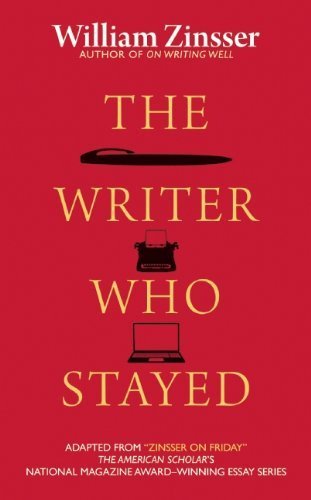What do you think?
Rate this book


Unknown Binding
First published September 18, 2012
[Imported automatically from my blog. Some formatting there may not have translated here.]
I put this book in by virtual to-be-read pile based on this column from George F. Will. Back when I bought books on writing, I bought a couple by William F. Zinsser: the acknowledged classic On Writing Well[image error] and Writing to Learn.[image error] I decided to go the library route for this one, and the always helpful University Near Here snagged a copy for me from Boston College.
This book is a collection of Zinsser's web columns for the American Scholar magazine in 2010 and 2011. A longtime print journalist, he was in his late eighties when he started writing for the web, and only stopped because his vision deteriorated to the point where it became impossible. (During this time he did not have an e-mail address; one of the essays describes his reasoning, and it's quite convincing.)
The essays are short, and I recommend reading them the way I did: two or three a day. Small bites, so you can appreciate the taste of each. There are a dizzying array of topics, touching, informative, enlightening. Zinsser can make just about anything interesting, I think.
For example: there's an essay on hats. Another one on meeting Edd Roush, the (then) oldest living member of the Baseball Hall of Fame, six days before he died. Another one about how he crafted an essay on Ellis Island, limited to a mere 300 words. Another one on why he doesn't give "tips" to writers. And on.
You can read these essays on two levels: they are interesting on their own, of course, but they are also shining examples of getting words to say what you want, with power, without waste.
Only one exception I noticed, in an essay subtitled "Why Plumbers Are a Good Role Model For Writers":
It may seem perverse that I compare my writing to plumbing, an occupation not regarded as high-end. But to me all work is equally honorable, all crafts an astonishment when they are performed with skill and self-respect.
Of course that's good. But my inner Mr. Editor says:
It may seem perverse that I compare my writing to plumbing, an occupation not regarded as high-end. But to me all work is equally honorable, all crafts an astonishment when they are performed with skill and self-respect.
(There's a new definition of chutzpah: thinking you can improve Zinsser's writing.)